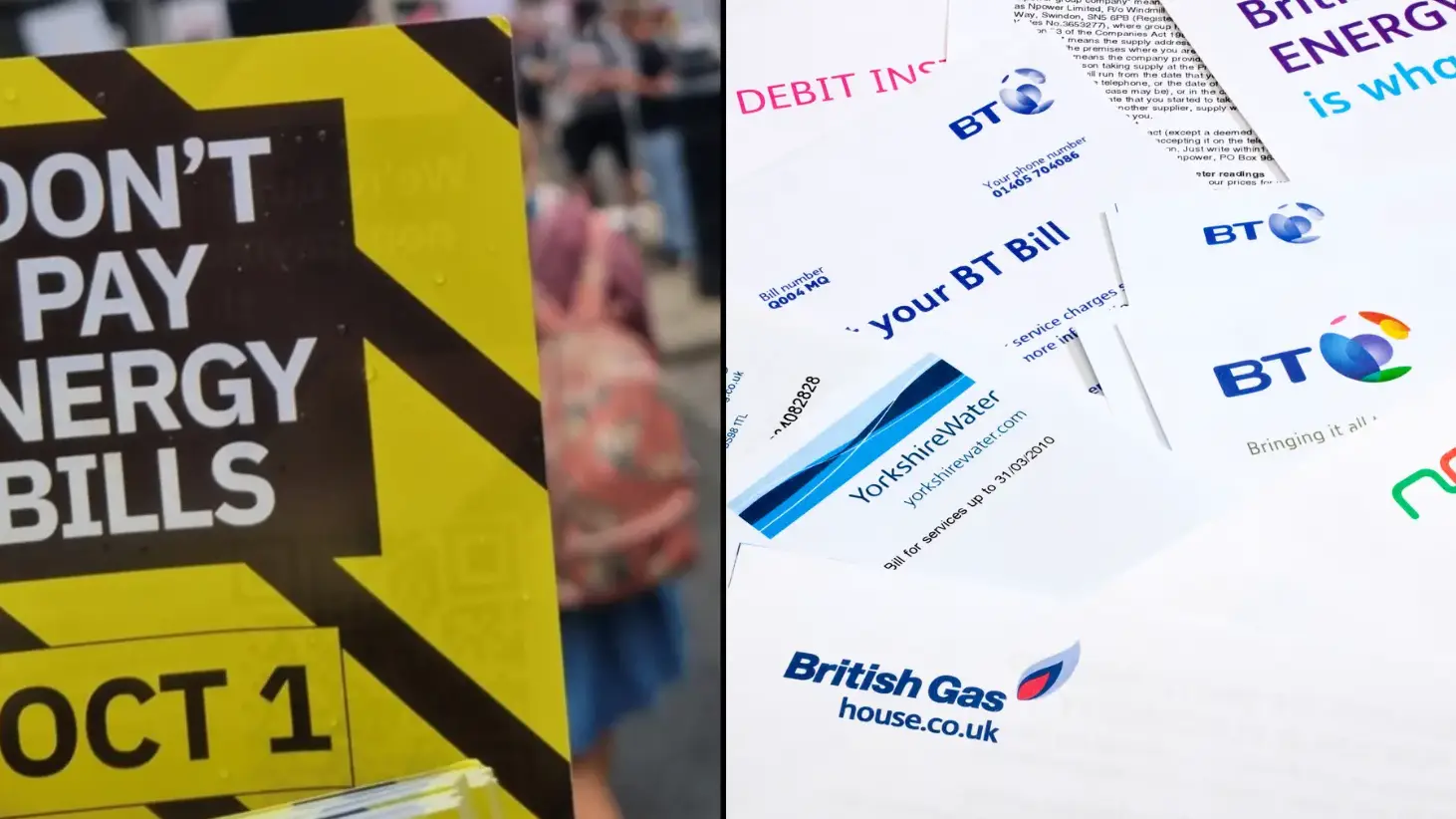
We’re in the midst of a cost of living crisis, where British citizens are finding the cost of fuel, food and energy bills have reached extortionate prices.
Now, more than 100,000 people have pledged not to pay bills from October when the next price hike is expected to hit households across the nation.
Experts have already warned that household bills could rise by almost 70 percent in two months’ time, with the current increases already impacting electricity bills and food prices.
In fact, predicted figures for utilities could reach almost £3,300 per year, according to experts.
Advert

Now, campaigners from Don’t Pay UK - who ‘are a movement against the rise in energy bills’ - are demanding a reduction in energy bills to be taken down to ‘an affordable level’.
The like-minded money-saving activists are also threatening to cancel their direct debits from 1 October if their demands are ignored.
According to the site, they are saying they will take action ‘if pledges reach one million’ by that date - meaning that a further 900,000 will need to sign the pledge in order to partake in the mass non-payment and ‘put energy companies in serious trouble’.
The idea of a mass payment rebellion ‘is not a new idea’, the organisation suggests. “It happened in the UK in the late 80s and 90s, when more than 17 million people refused to pay the Poll Tax – helping bring down the government and reversing its harshest measures.”

For those planning to join in by cancelling their direct debit, the organisation believes that ‘it will be extremely difficult for energy suppliers’ to cut off customers’ gas and electricity ‘on a mass scale’.
“But it is possible and you should know how the energy companies may respond if millions of us withhold payment,” they say.
Energy suppliers have certain rules they must follow if customers don’t pay. For example, in the first instance where a consumer has not paid after 28 days, the supplier may make contact about the possibility of disconnection.
However, they will first suggest installing a pre-payment metre, and they must give customers a chance to clear their debt through a payment plan.

Guidance also says that if an agreement cannot be reached, suppliers can apply for a warrant to enter the customers’ home to disconnect them.
For customers with a smart energy meter, suppliers could be able to disconnect them remotely without the need to access it in person, but they will still need to visit the home to assess the user’s personal situation and the impact that disconnection would have.
To pledge to join the strike, visit Don’t Pay UK here.
If you've been affected by any of the issues in this story, you can find more information about where to get help from Turn2Us via their website.